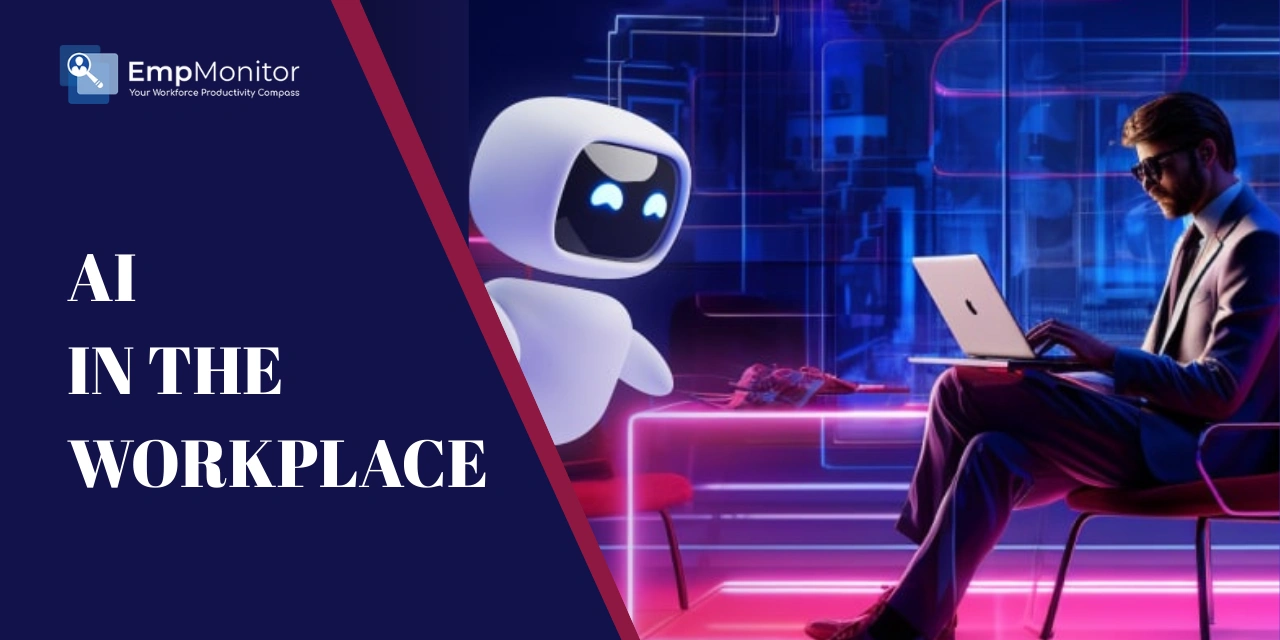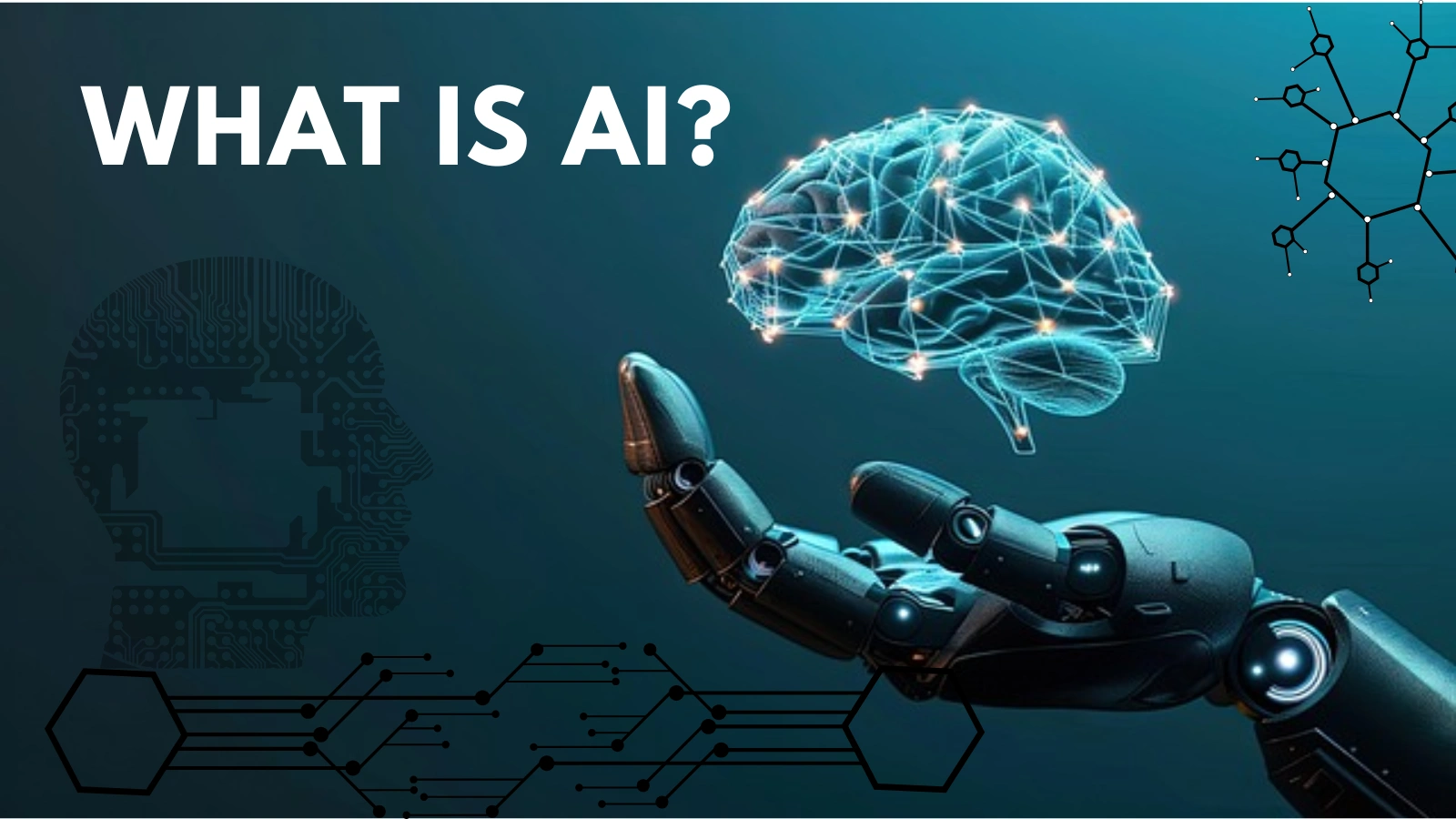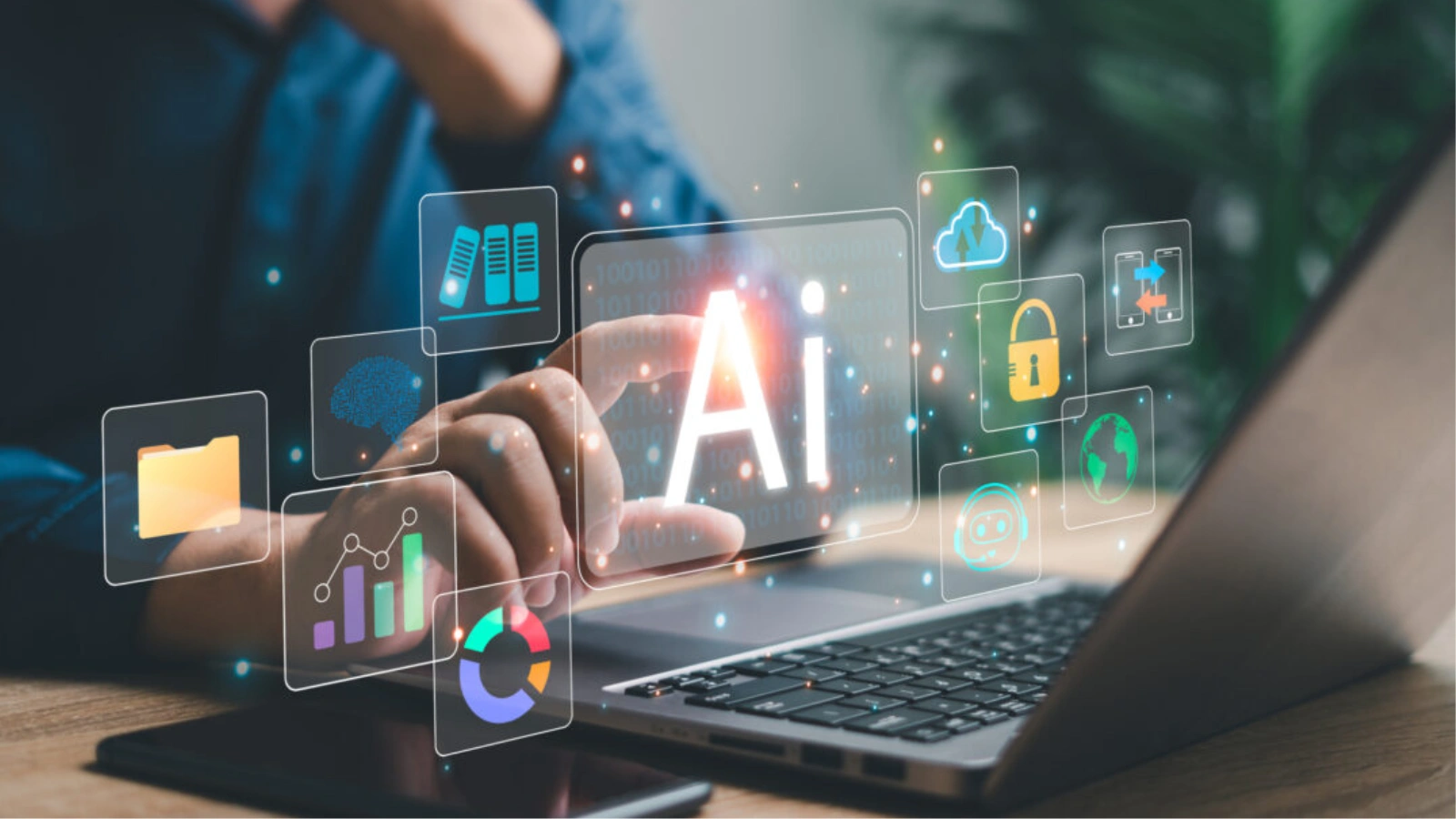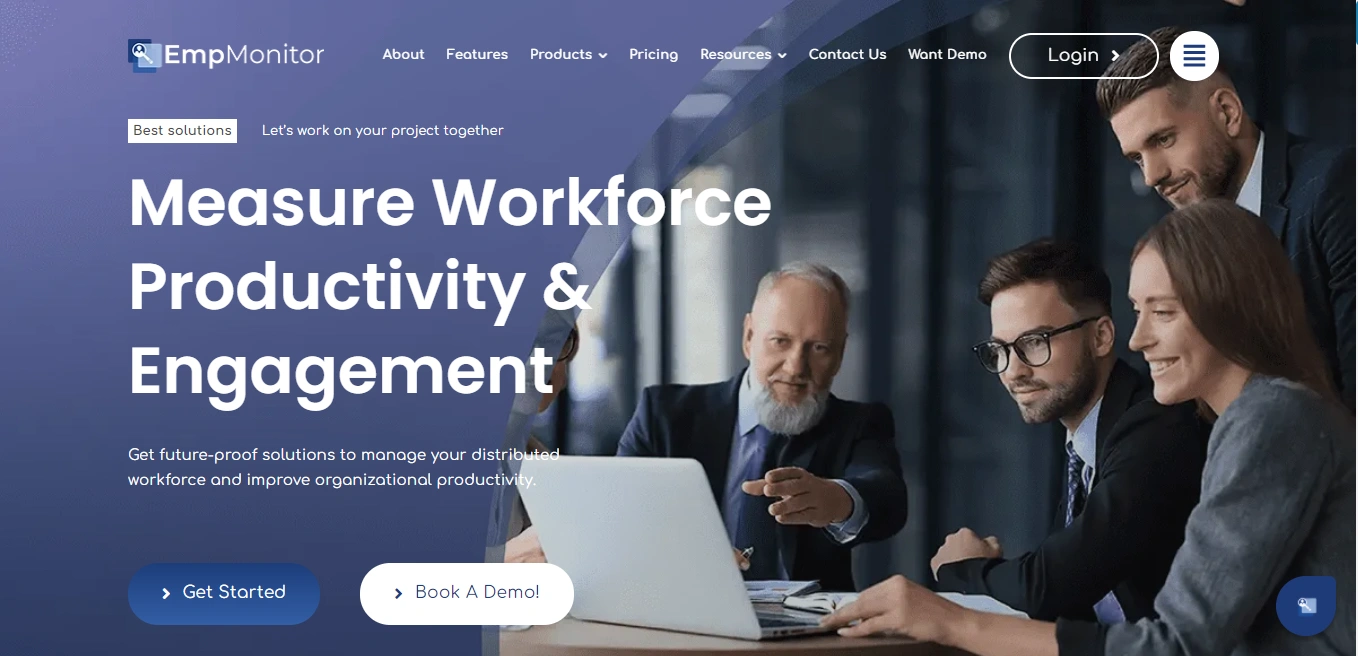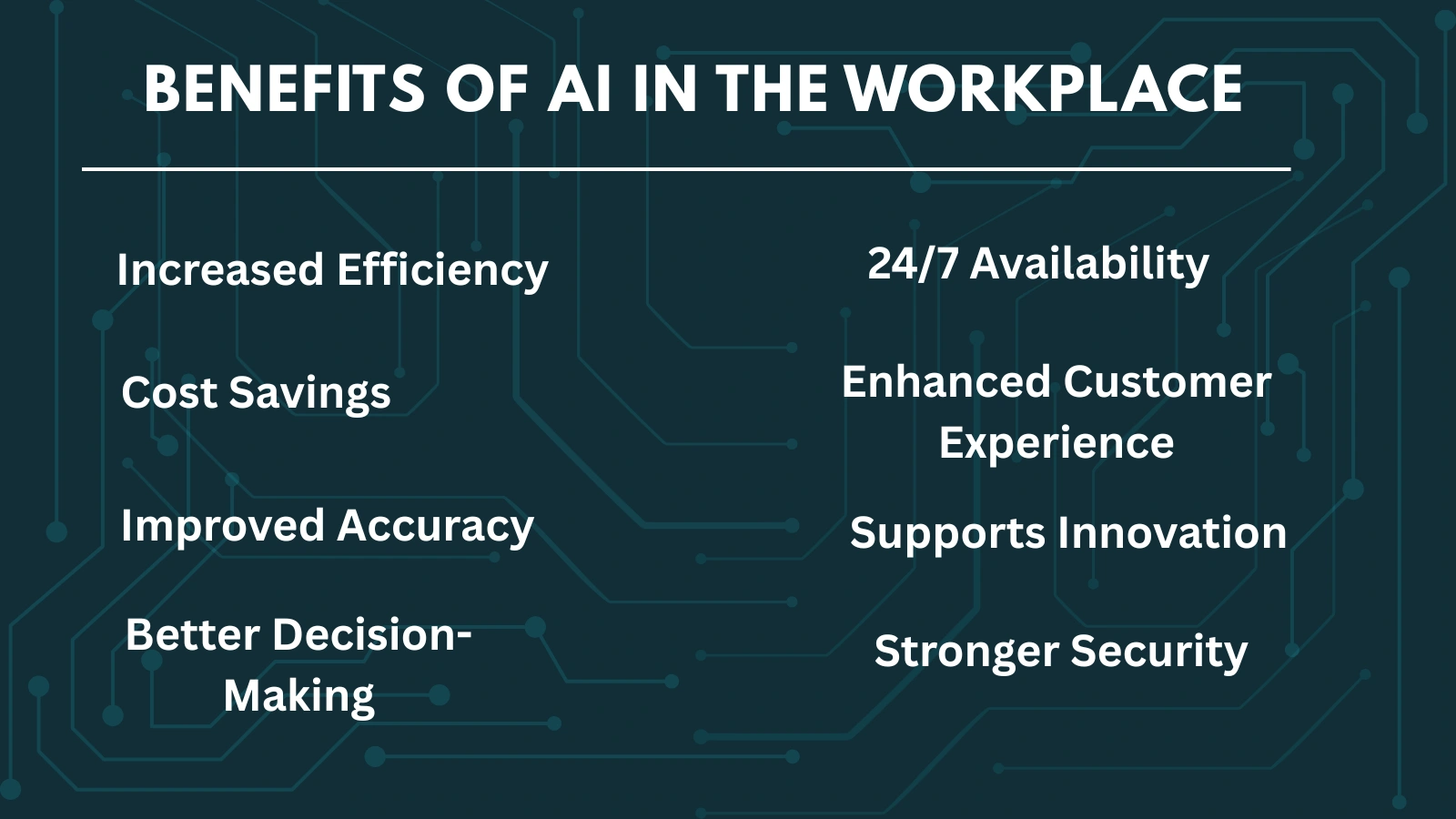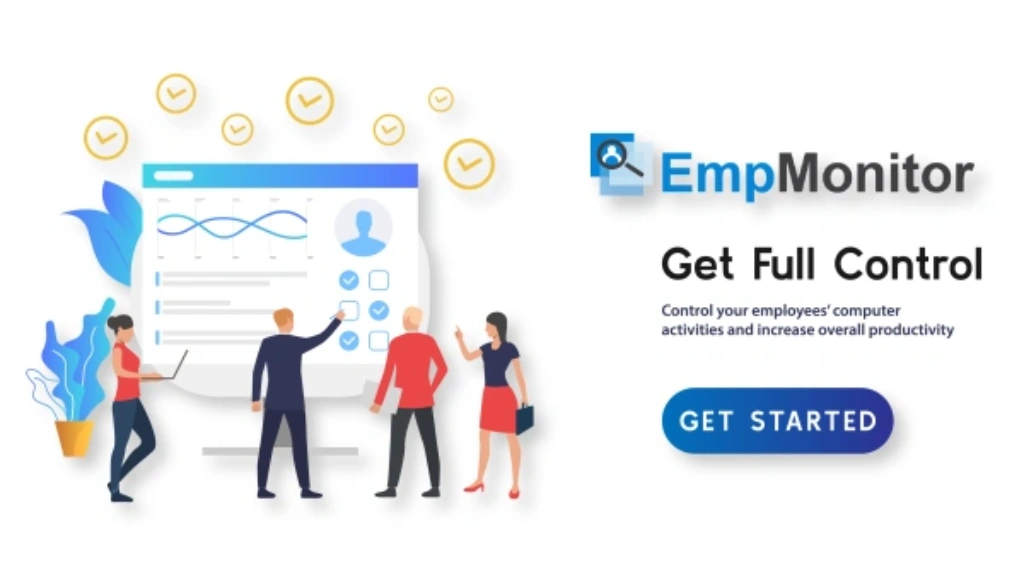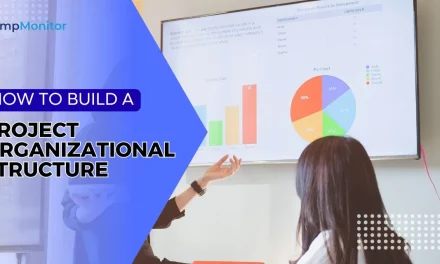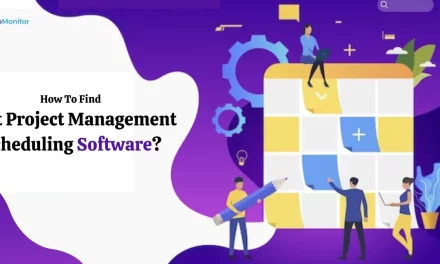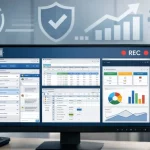The modern business world is increasingly dynamic and competitive. Therefore, understanding AI in the workplace is important to improve workforce performance and enhance operational efficiency. AI plays an important role in the modern business world, easing work and helping companies and businesses grow and perform better. Most Companies are using AI in the Workplace. It plays an important role in the growth of the organization. It indicates how well the company is growing.
In this blog, we will cover all the topics mentioned below and see how beneficial AI is in the workplace.
In a hurry? Listen to the blog instead!
What Is AI?
Artificial Intelligence (AI) is the ability of a computer or machine to perform tasks that usually require human intelligence. These tasks include understanding language, recognizing images, solving problems, and learning from experience. AI is used in many areas of daily life, such as AI use in the Workplace, voice assistants, recommendation systems, self-driving cars, and medical diagnosis. It helps make technology smarter and more useful by allowing machines to learn and adapt over time.
Artificial Intelligence (AI) in the workplace is changing the workplace by helping businesses work faster, smarter, and more efficiently. AI can handle repetitive tasks like data entry, customer service chats, and scheduling, allowing employees to focus on more complex or creative work. In more advanced setups, an AI Agent can proactively manage workflows, coordinate tasks across tools, and assist employees by making real-time, data-driven recommendations.
It also helps in analyzing large amounts of data to make better decisions, improve business productivity, and reduce errors. In some industries, AI is used for things like predicting trends, automating manufacturing, or managing supply chains. While it creates new opportunities, it also means that workers need to learn new skills to stay up to date.
Also Read!
What Is Business Productivity Monitoring, And How Does It Affect Your Business?
How To Use AI In The Workplace?
Automate Repetitive Tasks
AI in the workplace uses AI tools that handle routine jobs like Data entry, scheduling meetings, sorting emails, and processing invoices, which ease the task.
Example: Use AI-powered software like Microsoft Power Automate or Zapier to automate workflows.
Improve Customer Service
AI in the workplace can work in AI as chatbots and virtual assistants can answer common questions and provide 24/7 support, and also handle multiple customers at once.
Example: Chatbots like ChatGPT or Intercom can assist customers instantly.
Analyze Data and Gain Insights
AI can quickly process large amounts of data to find trends and to predict outcomes, and support better decision-making.
Example: Use AI tools like Tableau with built-in analytics to understand sales or customer data.
Enhance Hiring and HR
AI can streamline recruiting by scanning resumes, so it can save time and also use ai in the workplace to match candidates to job requirements and reduce bias.
Example: Platforms like LinkedIn Talent Insights, HireVue, or VidCruiter help HR teams make data-driven hiring choices.
On the other hand, candidates can use an AI resume checker like Rezi to optimize their reAi in the workplacesumes for job descriptions and improve their chances of passing applicant tracking systems.
Boost Marketing and Personalization
AI in the workplace can help businesses target the right audience and customize emails and ads, and optimize social media campaigns.
Example: Tools like HubSpot or Salesforce Einstein can recommend content and improve customer targeting.
Improve Security and Fraud Detection
In the workplace, AI can monitor systems in real-time, detect suspicious behavior, and prevent cyber threats.
Example: Use AI-based cybersecurity tools like Darktrace or CrowdStrike.
AI in the workplace is transforming how businesses operate, making tasks faster, smarter, and more efficient. One powerful tool that supports this transformation is EmpMonitor. It offers smart features like employee activity tracking, productivity analysis, time tracking, and real-time monitoring, all designed to help organizations manage teams more effectively. With AI-powered insights, EmpMonitor not only boosts productivity but also helps identify areas for improvement, ensuring a more focused and secure work environment.
Empmonitor Workforce Management Software
EmpMonitor is a comprehensive workforce productivity management software and employee monitoring software that leverages artificial intelligence (AI) to enhance productivity, streamline operations, and ensure data security in modern workplaces. By integrating AI-driven tools, EmpMonitor enables organizations to monitor and optimize employee performance effectively.
Key AI-Powered Features of EmpMonitor
1. Smart Productivity Tracking
EmpMonitor uses AI to help employers track how employees spend their time at work, including which apps and websites they use, active working hours, and break times. This gives managers a clear picture of team productivity without the need for constant supervision, helping them make better decisions to boost efficiency.
2. Behavior Analytics
With AI-powered behavior analytics, EmpMonitor can detect unusual employee activity like suspicious logins or unauthorized data access. It alerts managers in real time, helping prevent insider threats and ensuring a more secure and well-managed work environment.
3. Automated Reports and Insights
EmpMonitor automatically generates detailed daily, weekly, or monthly reports on employee performance. These AI-driven insights help managers quickly identify top performers, spot areas for improvement, and make faster, more informed decisions, saving time and improving team outcomes.
4. AI-Powered Time & Attendance Tracking
EmpMonitor uses advanced AI tools like auto time logging and facial recognition to accurately track attendance, work hours, and breaks. This eliminates manual errors, prevents buddy punching, and ensures smooth, reliable payroll and time management.
Now, get back to the topic.
Benefits Of AI In The Workplace
AI offers so many benefits in the workplace, primarily by increasing efficiency, cost saving, better decision making, and 24/7 availability. These benefits stem from AI’s ability to automate tasks, analyze data, and provide insights that humans might miss, leading to streamlined operations and better outcomes.
Here is a more detailed look at the key benefits:
1. Increased Efficiency
AI in the workplace can complete repetitive tasks quickly and consistently. For example, it can process thousands of documents or emails in minutes—something that would take hours for a human. This helps teams focus on high-impact work and meet deadlines faster.
2. Cost Savings
AI in the workplace can automate routine processes like data entry, customer service, or inventory management, Companies can reduce the need for additional staff and save on labor costs. AI also minimizes costly errors, further improving financial efficiency.
3. Improved Accuracy
AI systems don’t get tired or distracted, so they are less likely to make mistakes compared to humans. This is especially useful in fields like finance, healthcare, or data analysis, where accuracy is critical. For example, AI can help detect errors in spreadsheets or patient records.
4. Better Decision-Making
AI in the workplace can analyze large amounts of data quickly to spot patterns and trends that humans might miss. This helps managers and executives make smarter, data-driven decisions in areas like marketing, sales, operations, or human resources.
5. 24/7 Availability
Unlike human employees, AI-powered tools like EmpMonitor and virtual assistants don’t need breaks, sleep, or holidays. They can handle customer queries, monitor systems, or process requests at any time of day, improving service and productivity with AI in the workplace.
6. Enhanced Customer Experience
AI in the workplace helps provide fast, personalized support to customers. For example, chatbots can instantly answer common questions, while recommendation engines suggest products based on past behavior. This improves satisfaction and builds loyalty.
7. Supports Innovation
By taking over routine or low-skill tasks, AI gives employees more time to focus on creative and strategic projects. This leads to more innovation, better problem-solving, and the development of new products or services.
8. Stronger Security
Finally, AI strengthens workplace security by monitoring network traffic and systems in real time, detecting suspicious behavior, and preventing cyber threats. It can also help prevent fraud by identifying suspicious transactions or behaviors more quickly than manual methods.
Overall, companies that invest in AI development services can integrate these powerful capabilities more effectively, transforming how they work, communicate, and grow.
5 Pros And Cons Of AI In The Workplace
AI in the workplace can offer a huge number of benefits, like improved efficiency, cost reduction, better decision-making, enhanced customer support, and supporting innovation.
Here we will briefly see the benefits.
1. Improved Efficiency
AI systems can perform tasks at a much faster rate than humans and without breaks. For example, AI can scan thousands of documents or process customer requests instantly. This helps businesses increase productivity and meet deadlines more effectively.
2. Cost Reduction
Although AI can be expensive to implement, it often saves money over time. By automating repetitive tasks like data entry, customer service, or inventory management, companies reduce the need for human labor and minimize costly mistakes.
3. Better Decision-Making
AI in the workplace can analyze vast amounts of data quickly, helping businesses make well-informed decisions. For example, AI can detect customer trends, predict sales, or highlight areas for improvement by identifying patterns that are not immediately visible to humans.
4. Enhanced Customer Support
AI-powered chatbots and virtual assistants can handle customer inquiries 24/7, offering fast and accurate responses. This improves the customer experience and reduces the workload on human support teams, especially for basic or common queries. For teams looking to enhance automation further, AI chat agents provide intelligent, real-time assistance that can manage complex conversations, escalate issues when needed, and offer a seamless customer support experience.
5. Supports Innovation
When AI takes over repetitive tasks, employees have more time to focus on strategic thinking, creativity, and innovation. This can lead to new product ideas, improved services, and more competitive business strategies.
Cons Of AI In The Workplace
Here are some of the cons of AI in the Workplace:
1. Job Displacement
One of the biggest concerns is that AI may replace human jobs, particularly those involving repetitive or routine work. Roles in data entry, customer service, and even driving could be affected, leading to job losses and economic disruption.
2. High Initial Costs
Developing or implementing AI systems can be expensive. Companies may need to invest in new hardware, software, training, and maintenance. For small or mid-sized businesses, this cost can be a major barrier.
3. Lack of Human Judgment
AI lacks emotional intelligence, empathy, and ethical reasoning. In situations requiring human understanding, like handling a sensitive customer complaint or making a moral decision, AI falls short. To maintain balance, organizations often use tools like an AI detector to ensure that AI-generated content is reviewed and validated by humans, keeping authenticity and empathy intact.
4. Data Privacy Risks
AI systems rely on large volumes of data to function. If not handled securely, this can pose serious risks to personal privacy and data security. A data breach could damage a company’s reputation and lead to legal issues.
5. Skill Gaps
As AI becomes more common, workers need to learn how to use new tools and adapt to new ways of working. However, not all employees have the technical skills or access to training, leading to a gap between those who can adapt and those who cannot, structured learning paths like an ms in aiml can help close that gap.
This is how you can, but if you want to truly measure your team productivity, relying on a productivity management solution like EmpMonitor is the best choice.
Conclusion
The integration of AI in the workplace is transforming the way businesses operate, driving improvements in productivity, efficiency, and decision-making. AI-powered tools, like those offered by EmpMonitor, provide companies with enhanced insights into employee performance, automate routine tasks, and ensure better data security and privacy. However, it’s crucial to implement these technologies ethically, maintaining a balance between maximizing productivity and respecting employee rights.
As AI continues to shape the future of work, organizations need to prioritize transparency, fairness, and collaboration with employees to ensure trust and legal compliance. When applied thoughtfully, AI can be a powerful tool for optimizing workforce intelligence management while fostering a more productive and engaged workplace.
Also Read!
What Is Workforce Intelligence And Why Is It Important?
How Do Employers Track Remote Workers? 5 Exclusive Methods for 2025!
FAQ
1. What is AI, and how is it used in the workplace?
Artificial Intelligence (AI) refers to computer systems that can perform tasks typically requiring human intelligence, such as learning, reasoning, problem-solving, and decision-making. In the workplace, AI is used for:
Automating repetitive tasks (e.g., data entry, scheduling).
Analyzing large datasets (e.g., for market research or forecasting).
Enhancing customer service (e.g., chatbots, virtual assistants).
Supporting decision-making (e.g., AI-powered dashboards).
Improving recruitment (e.g., resume screening).
2. Will AI take my job?
AI may change the nature of work, but it doesn’t necessarily mean replacing jobs. It often:
Automates routine or repetitive tasks
Creates new job opportunities (e.g., AI maintenance, ethics officers)
Enables employees to focus on higher-value, creative, or interpersonal tasks
Upskilling and adaptability will be key to staying relevant in an AI-enabled environment.
3. How can employees prepare for AI adoption?
To stay ahead:
Learn about AI basics and how it applies to your field
Develop soft skills like problem-solving, communication, and collaboration.
Take courses on data literacy, programming, or AI tools.
Engage in lifelong learning and be open to reskilling.

